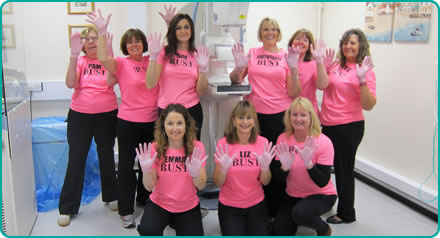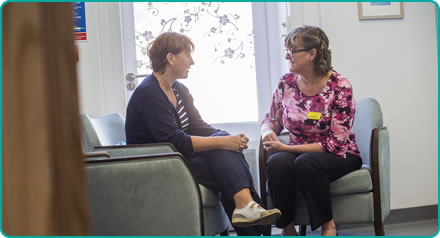Regular
Off
Off
We are able to offer a complete investigatory process for patients referred to our service. Each patient will undergo consultation, breast palpation and ultrasound. Our uniqueness is that the clinician who examines the patient will perform an ultrasound within the same consultation. Depending on the clinicians findings he/she may well then recommend a mammogram and possibly tissue biopsy (FNA or core biopsy). A significant number of patients referred will not require a tissue biopsy. Clinical Nurse Specialists are present in clinics. Mammography is situated within the same department.
All patients are seen within the government guidelines of two weeks.
Our referral system has two options for your consideration.
- Care pathway where you suspect a breast cancer diagnosis
- Care pathway where you do not suspect breast cancer to be diagnosed
Where a diagnosis of breast cancer is suspected we are able to undertake all necessary investigations within the same appointment. A specialist Nurse is available for support for women who have concerns regarding their potential diagnosis. Patients return for the biopsy results. If the patient receives a cancer diagnosis, the specialist nurse meets with the patient/carer for support and assistance (if applicable) with decision making.
If you wish to talk through with a clinician or specialist nurse before you make your referral please feel free to telephone the Bristol Breast Care Centre.
Family History Clinic Referral
Patients are referred by GPs should be clearly marked as Family History, so that they don’t end up in a one stop clinic.
If the referral is specifically for gene testing, then please refer directly to the Clinical Genetics Service at St Michaels Hospital, Bristol.
Although screening would not usually start before 40, we would be happy be happy to see younger women to assess their risk and give them a strategy.
Contact Bristol Breast Care
Bristol Breast Care Centre
Beaufort House
Southmead Hospital
Westbury-on-Trym
Bristol
BS10 5NB
Telephone*: 0117 4147000 or email familyhistorybreastcare@nbt.nhs.uk.
* 9am - 5pm Monday to Thursday, Friday 9am - 4pm


